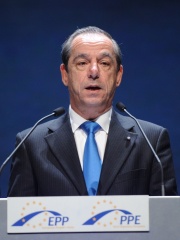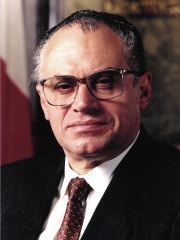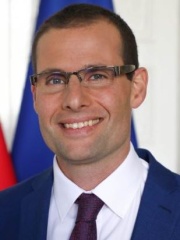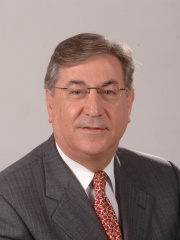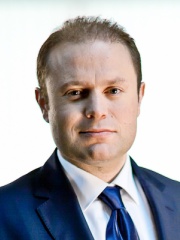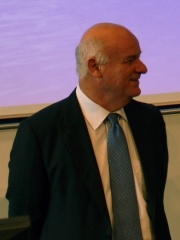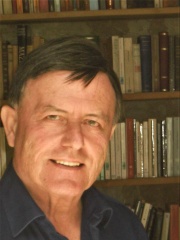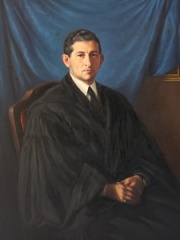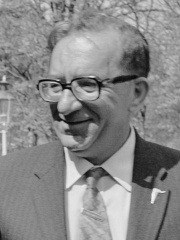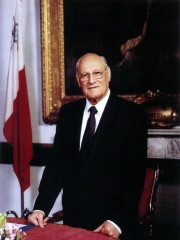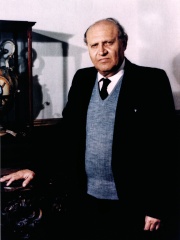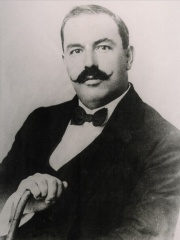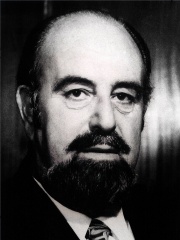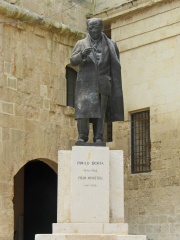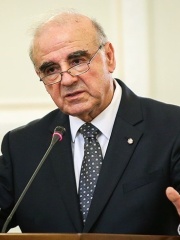
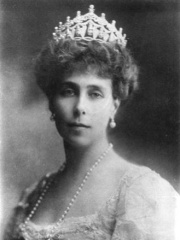
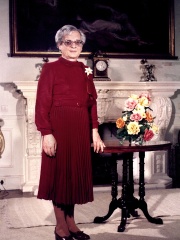
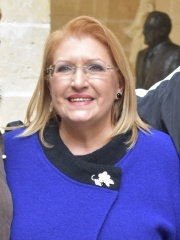
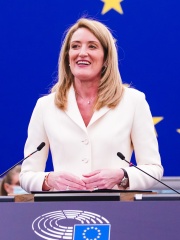
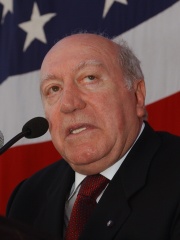
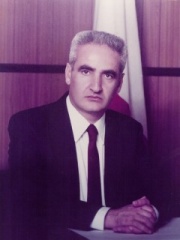
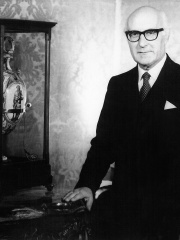
The Most Famous
POLITICIANS from Malta
This page contains a list of the greatest Maltese Politicians. The pantheon dataset contains 19,576 Politicians, 26 of which were born in Malta. This makes Malta the birth place of the 99th most number of Politicians behind Taiwan, and Bangladesh.
Top 10
The following people are considered by Pantheon to be the top 10 most legendary Maltese Politicians of all time. This list of famous Maltese Politicians is sorted by HPI (Historical Popularity Index), a metric that aggregates information on a biography's online popularity. Visit the rankings page to view the entire list of Maltese Politicians.

1. George Vella (b. 1942)
With an HPI of 71.23, George Vella is the most famous Maltese Politician. His biography has been translated into 44 different languages on wikipedia.
George William Vella (born 24 April 1942) is a Maltese politician who served as the tenth president of Malta from 2019 to 2024. A member of the Labour Party, he previously served as deputy prime minister of Malta and foreign affairs minister from 1996 to 1998 under prime minister Alfred Sant. In 2013, he returned as foreign affairs minister, an office he held until 2017 under prime minister Joseph Muscat.

2. Princess Victoria Melita of Saxe-Coburg and Gotha (1876 - 1936)
With an HPI of 68.41, Princess Victoria Melita of Saxe-Coburg and Gotha is the 2nd most famous Maltese Politician. Her biography has been translated into 33 different languages.
Princess Victoria Melita of Saxe-Coburg and Gotha (25 November 1876 – 2 March 1936) was Grand Duchess of Hesse and by Rhine from 1894 to 1901 as the wife of Ernest Louis, Grand Duke of Hesse and Consort of the Head of the House of Romanov as the wife of Grand Duke Kirill Vladimirovich of Russia from 1924 until her death. She was the daughter of Alfred, Duke of Saxe-Coburg and Gotha and Grand Duchess Maria Alexandrovna of Russia, and a granddaughter of both Queen Victoria of the United Kingdom and Emperor Alexander II of Russia. Born a British princess, Victoria spent her early life in England and lived for three years in Malta, where her father served in the Royal Navy. In 1889, the family moved to Coburg, where Victoria's father became the reigning duke in 1893. In her teens, Victoria fell in love with her maternal first cousin Grand Duke Kirill Vladimirovich of Russia, but his Orthodox Christian faith discouraged marriage between first cousins. Bowing to family pressure, Victoria married her paternal first cousin Grand Duke Ernest Louis of Hesse, in 1894. The marriage failed – Victoria scandalized the royal families of Europe when she divorced her husband in 1901. The couple's only child, Princess Elisabeth, died of typhoid fever in 1903. Victoria married Kirill in 1905. They wed without the formal approval of Britain's King Edward VII (as the Royal Marriages Act 1772 would have required), and in defiance of Russia's Emperor Nicholas II. In retaliation, Nicholas stripped Kirill of his offices and honours, also initially banishing the couple from Russia. They had two daughters, Maria and Kira, and settled in Paris before being allowed to visit Russia in 1909. In 1910 they moved to Russia, where Nicholas recognized Victoria as Grand Duchess Victoria Feodorovna. After the fall of the Russian monarchy in 1917 they escaped to Finland (then still part of the Russian Empire) where she gave birth to her only son, Vladimir, in August 1917. In exile they lived for some years among her relatives in Germany, and from the late 1920s on an estate they bought in Saint-Briac in Brittany. In 1926 Kirill proclaimed himself Russian emperor in exile, and Victoria supported her husband's claims. Victoria died in 1936 after suffering a stroke while visiting her daughter Maria in Amorbach.

3. Agatha Barbara (1923 - 2002)
With an HPI of 67.11, Agatha Barbara is the 3rd most famous Maltese Politician. Her biography has been translated into 51 different languages.
Agatha Barbara, (11 March 1923 – 4 February 2002) was a Maltese politician, having served as a Labour Member of Parliament and Minister. She was the first woman to serve as president of Malta, and remains the longest-serving woman Member of Parliament in Maltese political history.

4. Marie-Louise Coleiro Preca (b. 1958)
With an HPI of 66.86, Marie-Louise Coleiro Preca is the 4th most famous Maltese Politician. Her biography has been translated into 57 different languages.
Marie-Louise Coleiro Preca, (born 7 December 1958) is a Maltese politician who was president of Malta from 2014 to 2019. She has been president of Eurochild since 2019. Previously, as a member of the Labour Party, Coleiro Preca was a Member of Parliament (MP) in the House of Representatives of Malta from 1998 to 2014. She served as the Minister for the Family and Social Solidarity from 2013 to 2014 under Prime Minister Joseph Muscat.

5. George Abela (b. 1948)
With an HPI of 66.15, George Abela is the 5th most famous Maltese Politician. His biography has been translated into 48 different languages.
George Abela, (born 22 April 1948) is a Maltese politician who was the eighth president of Malta from April 2009 to April 2014.

6. Roberta Metsola (b. 1979)
With an HPI of 65.99, Roberta Metsola is the 6th most famous Maltese Politician. Her biography has been translated into 56 different languages.
Roberta Metsola (née Tedesco Triccas; born 18 January 1979) is a Maltese politician who has served as the president of the European Parliament since January 2022. She is a member of Malta's Nationalist Party (PN) and the European People's Party (EPP). Metsola was first elected as a member of the European Parliament (MEP) in 2013, and became the First Vice-President of the European Parliament in November 2020. Following the death of the incumbent president David Sassoli, Metsola was elected as president of the European Parliament on 18 January 2022, becoming the youngest ever president, the first Maltese person to hold the office, and the first female president since 2002.

7. Guido de Marco (1931 - 2010)
With an HPI of 64.74, Guido de Marco is the 7th most famous Maltese Politician. His biography has been translated into 36 different languages.
Guido de Marco (22 July 1931 – 12 August 2010) was a Maltese politician, who served as the sixth president of Malta from 1999 to 2004. A noted statesman and lawmaker, de Marco also served as Deputy Prime Minister, Minister of the Interior, Justice, and Minister for Foreign Affairs. He was elected President of the 45th session of the United Nations General Assembly in 1990, and Chairman of the Commonwealth Foundation in 2004. A renowned criminal lawyer, he defended some of the landmark cases in Malta during the 1980s. His sudden death in 2010 shocked the nation and prompted three days of national mourning and a state funeral.

8. Karmenu Mifsud Bonnici (1933 - 2022)
With an HPI of 63.61, Karmenu Mifsud Bonnici is the 8th most famous Maltese Politician. His biography has been translated into 20 different languages.
Karmenu Mifsud Bonnici, (17 July 1933 – 5 November 2022) was a Maltese politician who served as Prime Minister of Malta from December 1984 to May 1987.

9. Anthony Mamo (1909 - 2008)
With an HPI of 61.90, Anthony Mamo is the 9th most famous Maltese Politician. His biography has been translated into 33 different languages.
Sir Anthony Joseph Mamo, (9 January 1909 – 1 May 2008) was the first president of Malta and previously served as the last governor-general of the State of Malta before the country became a republic. He was also the first Maltese citizen to be appointed Governor-General, and before independence, briefly served as acting Governor.
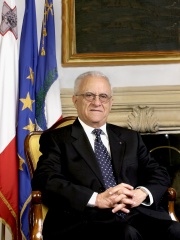
10. Eddie Fenech Adami (b. 1934)
With an HPI of 61.40, Eddie Fenech Adami is the 10th most famous Maltese Politician. His biography has been translated into 41 different languages.
Edoardo "Eddie" Fenech Adami (born 7 February 1934) is a Maltese and Nationalist politician who served as the prime minister of Malta from 1987 until 1996, and again from 1998 until 2004. Subsequently, he was the seventh president of Malta from 2004 to 2009. He led his party to win four general elections, in 1987, 1992, 1998 and 2003, as well as the majority of votes in 1981. Staunchly pro-European, Fenech Adami was fundamental for Malta's accession to the European Union. Originally a lawyer, Fenech Adami was co-opted Member of Parliament (MP) in 1969. He served in a number of senior party positions, including president of the Administrative and General Councils, and was elected to succeed Giorgio Borġ Olivier as party leader. From April 1977 onwards, Fenech Adami led the Nationalist opposition in a campaign of civil disobedience against the Mintoff and Mifsud Bonnici administrations of the late seventies and eighties, focusing on a message of respect for democratic principles and human rights. Upon moving into Auberge de Castille in 1987, Fenech Adami began a policy of national reconciliation, initiating a series of political and economic reforms intended to open up the economy, reverse high unemployment and the islands' problems following sixteen years of socialist policies. His political ideology and economic policies highlighted deregulation, more flexible labour markets, the overhaul of the country's physical infrastructure and the privatisation of state-owned companies. The legal and business structures were also overhauled and trade liberalised. The communications, financial services and banking sectors were deregulated or privatised. Malta also began a period of integration with the EU, formally applying for membership in 1990. Fenech Adami was re-elected with a modest majority in 1992; his popularity, however, wavered during his second term of office amid further economic reforms, particularly the introduction of VAT, and the re-branding of the main opposition party with a new and more dynamic leader, Alfred Sant. Losing power in 1996, Fenech Adami was returned as prime minister within twenty-two months, after the Labour government's decision to call a snap election backfired. Reversing the unpopular economic policies of the Labour Party, Fenech Adami reactivated Malta's EU membership application and initiated further economic reforms. He successfully led the pro-EU movement in the 2003 EU membership referendum campaign and won the successive election. He signed Malta's Accession Treaty with the European Union and represented Malta in various EU Summits and Commonwealth meetings. Fenech Adami resigned as Leader of the Nationalist Party in February 2004, resigning his premiership and giving up his parliamentary seat in March 2004. He became the seventh President of Malta in April 2004.
People
Pantheon has 26 people classified as Maltese politicians born between 1876 and 1979. Of these 26, 14 (53.85%) of them are still alive today. The most famous living Maltese politicians include George Vella, Marie-Louise Coleiro Preca, and George Abela. The most famous deceased Maltese politicians include Princess Victoria Melita of Saxe-Coburg and Gotha, Agatha Barbara, and Guido de Marco.
Living Maltese Politicians
Go to all RankingsGeorge Vella
1942 - Present
HPI: 71.23
Marie-Louise Coleiro Preca
1958 - Present
HPI: 66.86
George Abela
1948 - Present
HPI: 66.15
Roberta Metsola
1979 - Present
HPI: 65.99
Eddie Fenech Adami
1934 - Present
HPI: 61.40
Lawrence Gonzi
1953 - Present
HPI: 60.06
Ugo Mifsud Bonnici
1932 - Present
HPI: 57.30
Robert Abela
1977 - Present
HPI: 55.93
Karmenu Vella
1950 - Present
HPI: 54.68
Joseph Muscat
1974 - Present
HPI: 53.29
Joe Borg
1952 - Present
HPI: 53.23
Alfred Sant
1948 - Present
HPI: 52.77
Deceased Maltese Politicians
Go to all RankingsPrincess Victoria Melita of Saxe-Coburg and Gotha
1876 - 1936
HPI: 68.41
Agatha Barbara
1923 - 2002
HPI: 67.11
Guido de Marco
1931 - 2010
HPI: 64.74
Karmenu Mifsud Bonnici
1933 - 2022
HPI: 63.61
Anthony Mamo
1909 - 2008
HPI: 61.90
George Borg Olivier
1911 - 1980
HPI: 60.58
Dom Mintoff
1916 - 2012
HPI: 60.18
Ċensu Tabone
1913 - 2012
HPI: 58.71
Paul Xuereb
1923 - 1994
HPI: 57.85
Enrico Mizzi
1885 - 1950
HPI: 53.74
Albert Hyzler
1916 - 1993
HPI: 53.20
Paul Boffa
1890 - 1962
HPI: 50.89
Overlapping Lives
Which Politicians were alive at the same time? This visualization shows the lifespans of the 11 most globally memorable Politicians since 1700.

